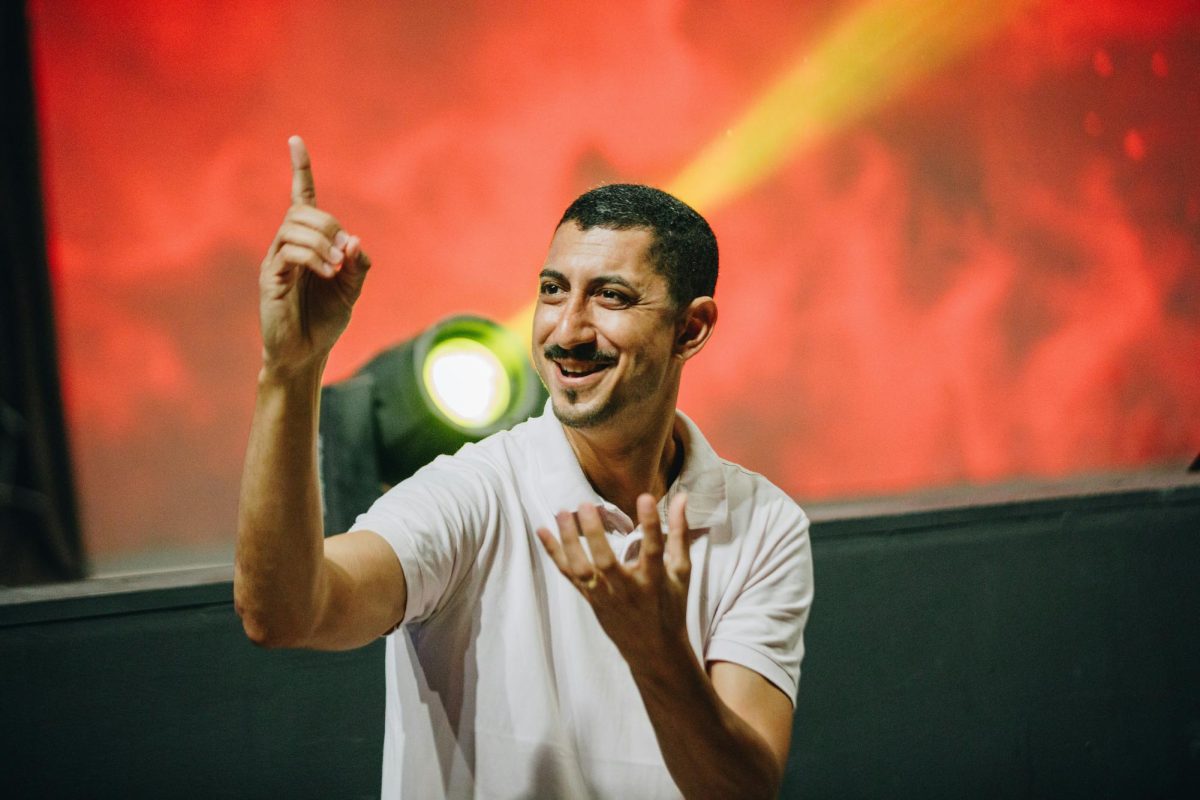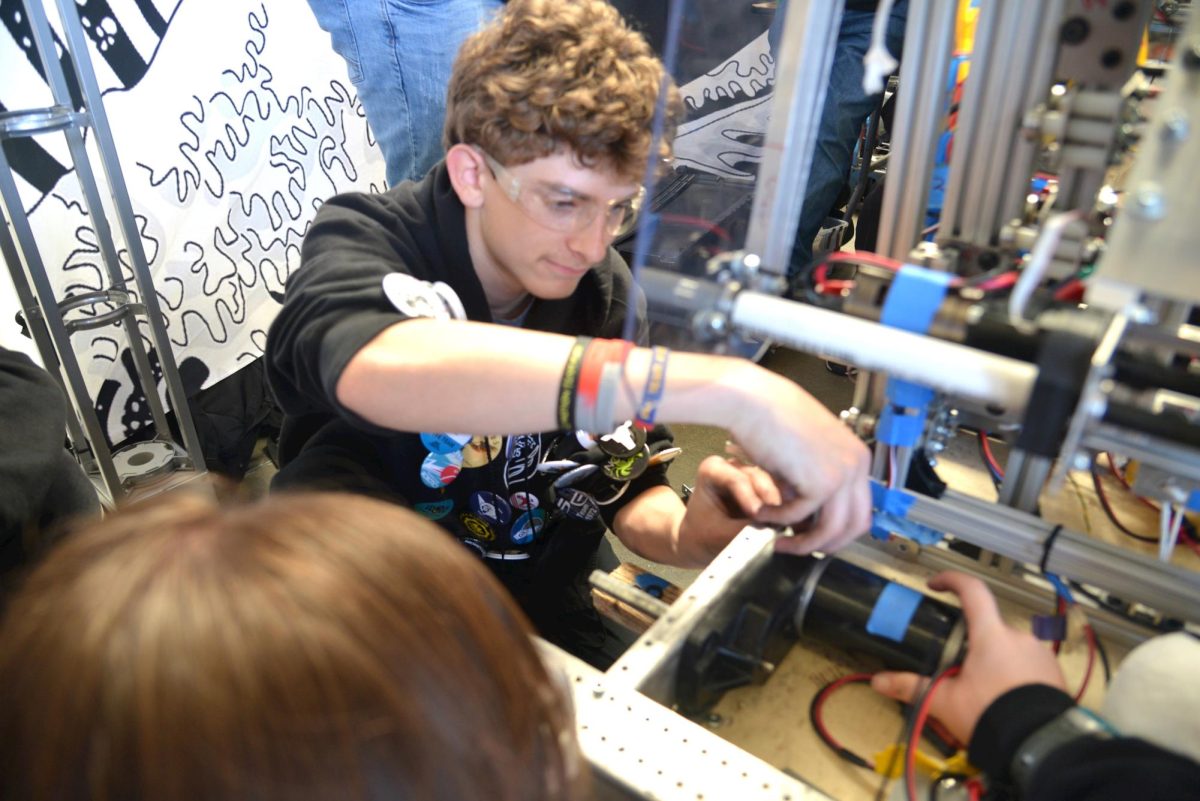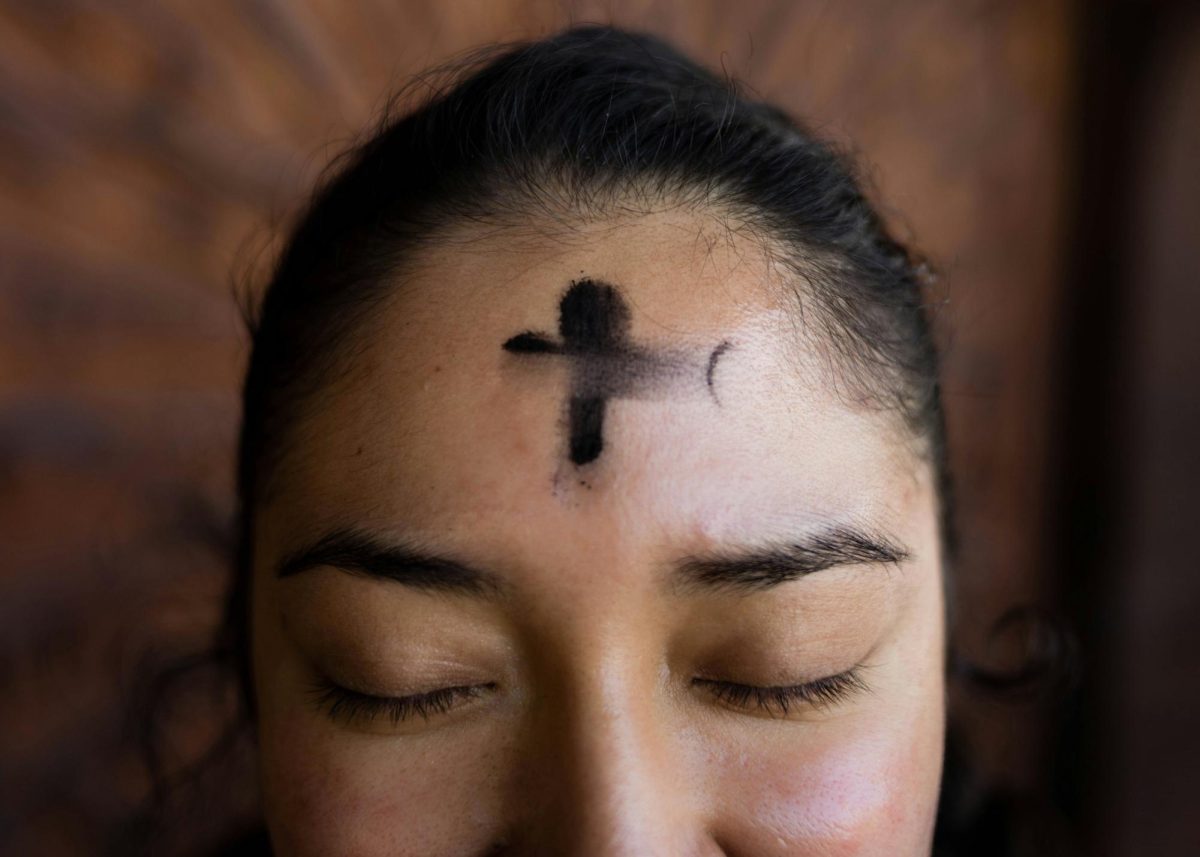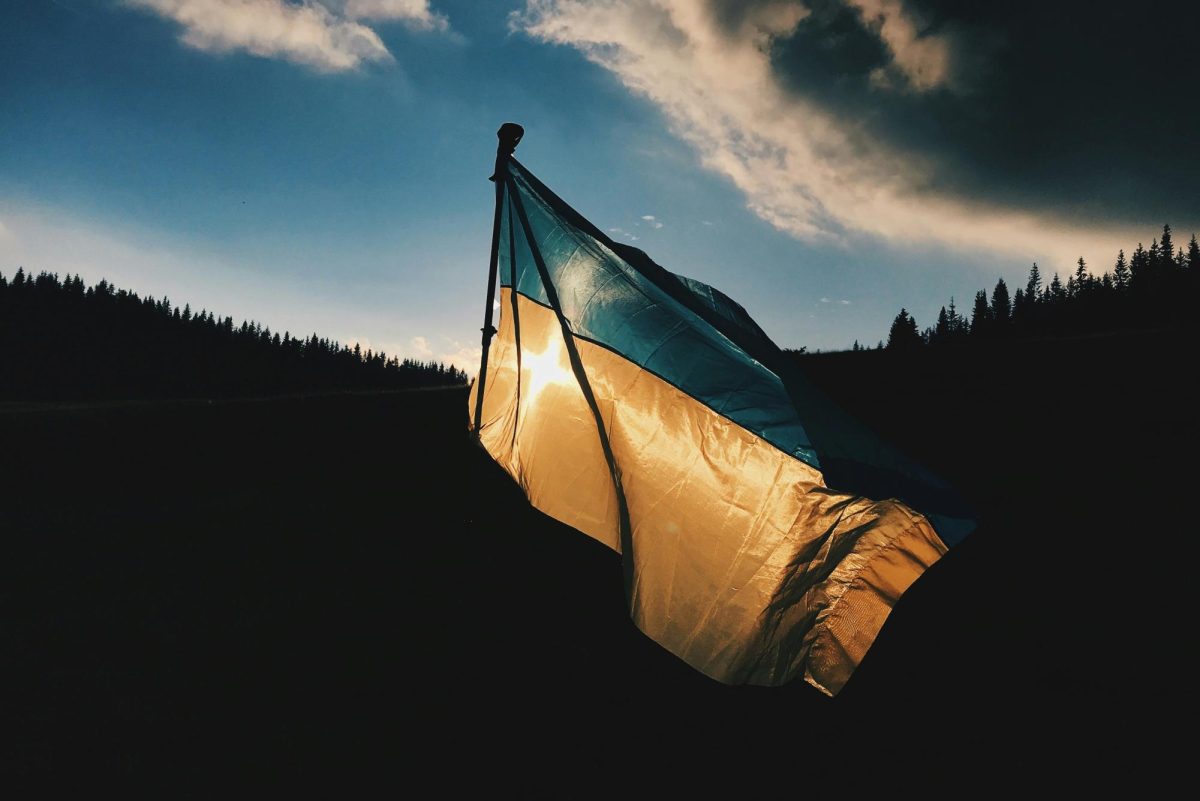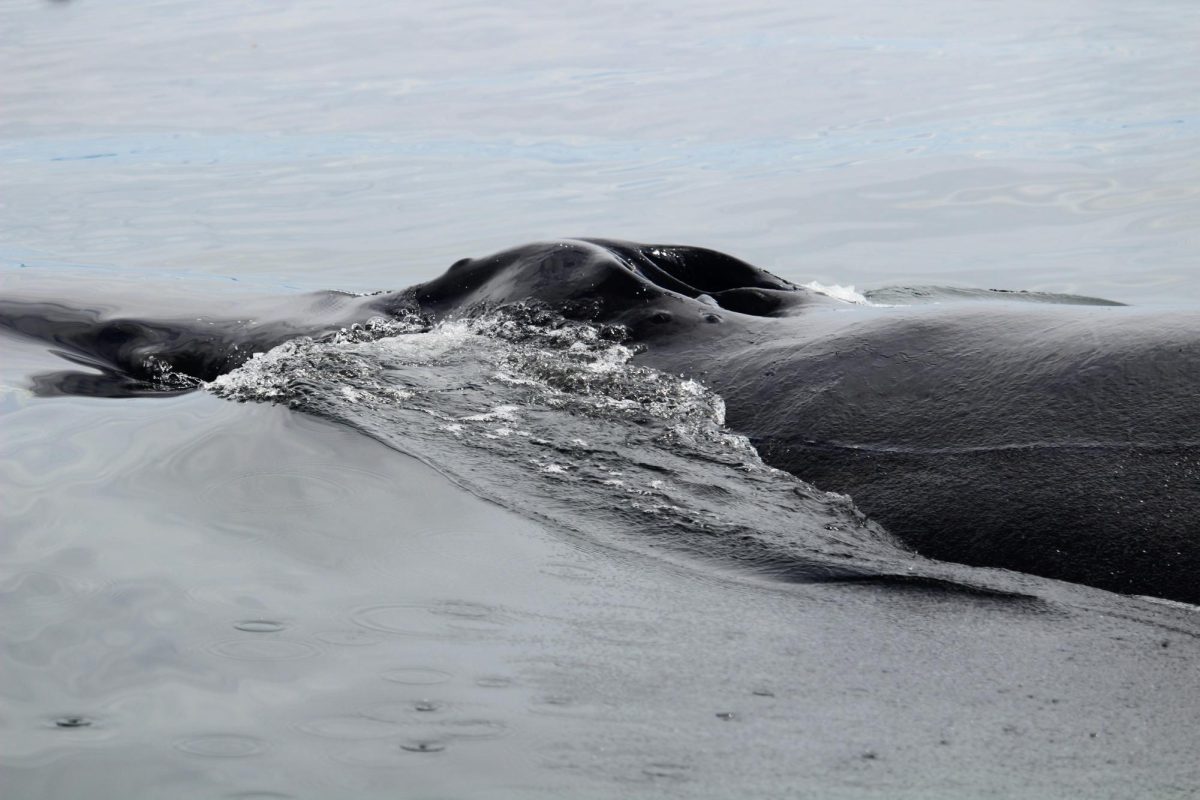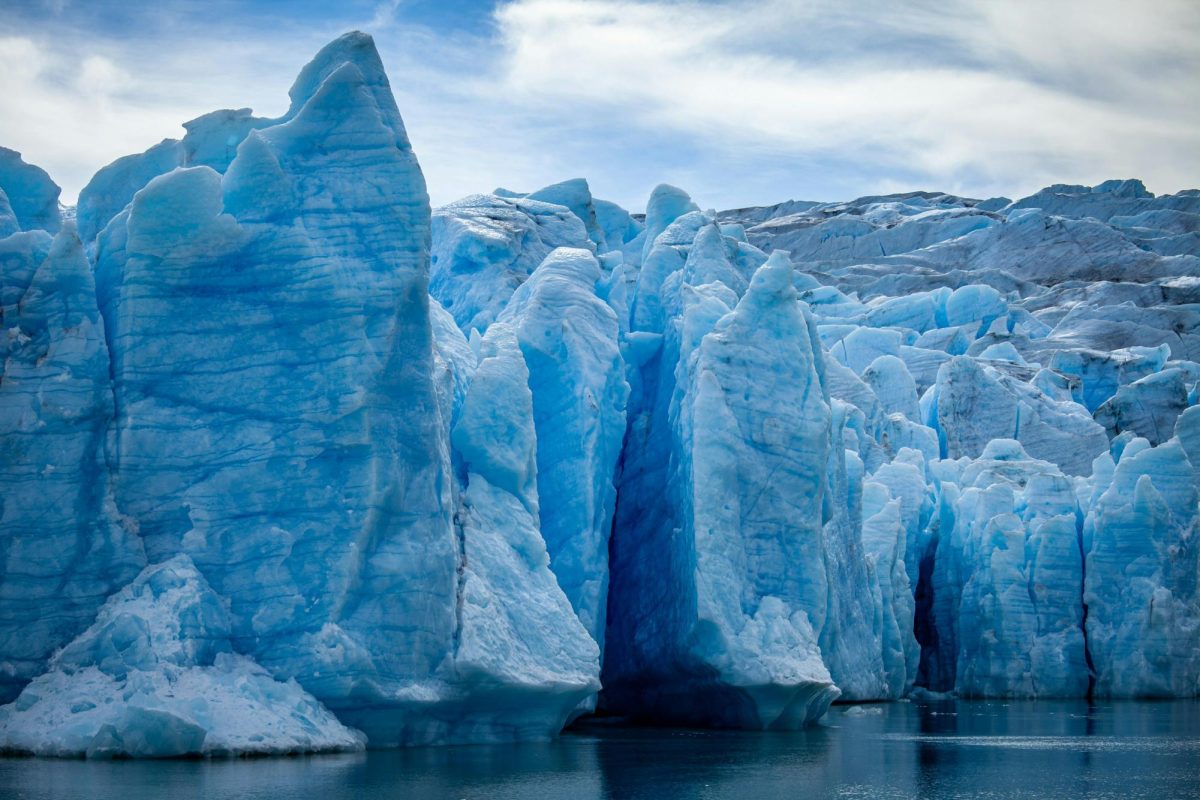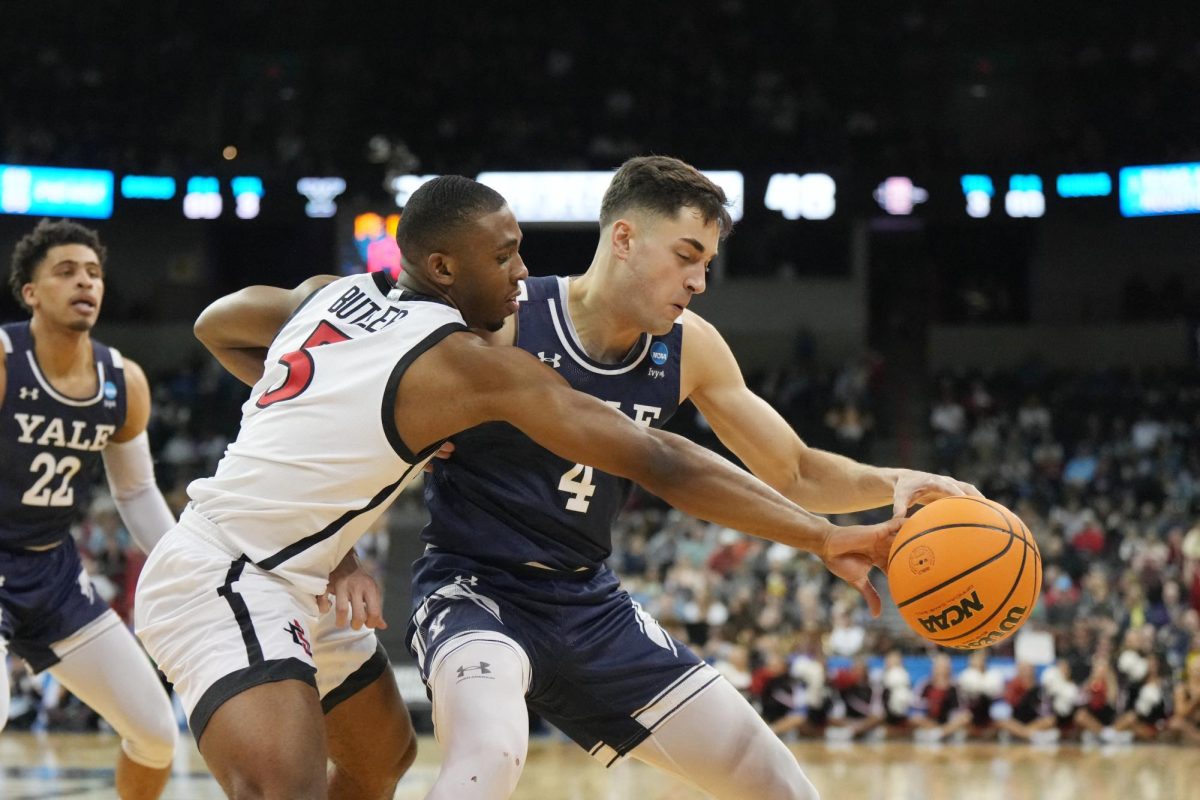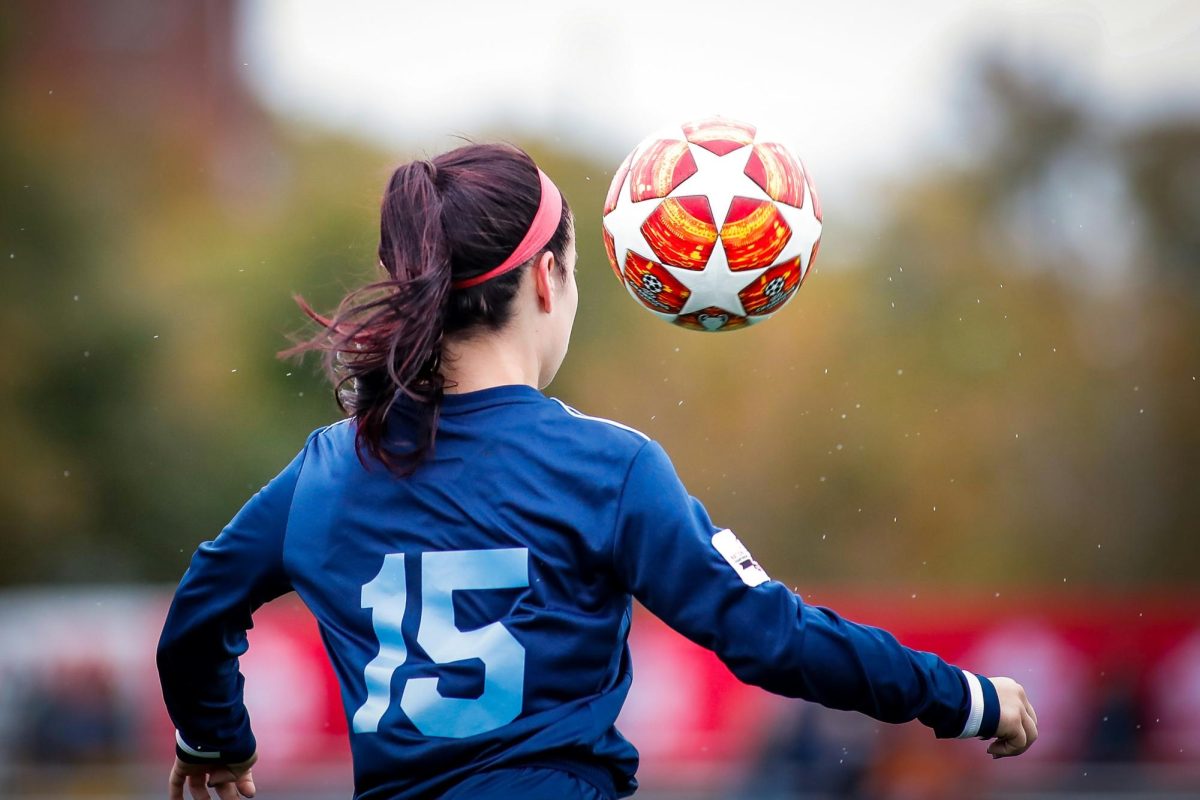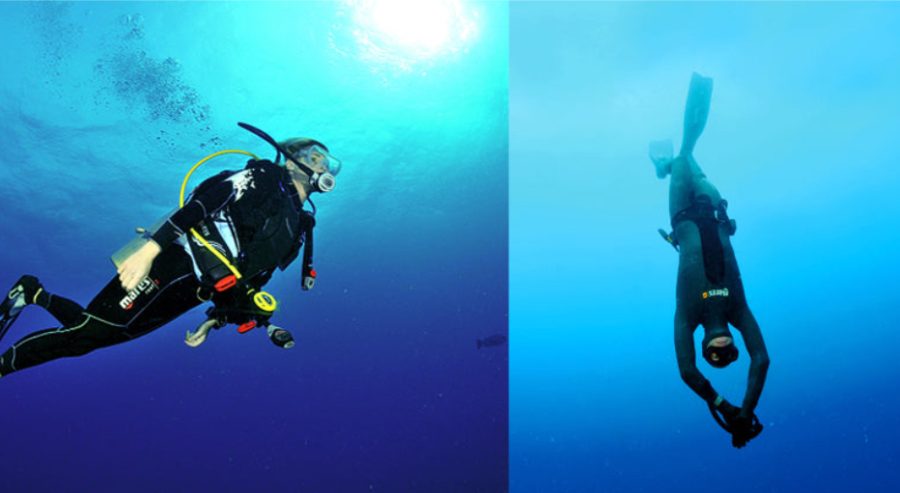Scuba Diving
A scuba diver and a freediver are both swimming in the ocean, and the difference in equipment and form is displayed.
The ocean is a vast ecosystem filled with all sorts of marine life, and we have only begun to explore it. More than 80% of the ocean remains unexplored. Some ways to explore the ocean without technology such as submarines or sonar are by scuba diving or freediving. These sports are becoming more popular and accessible.
Scuba stands for self contained underwater breathing apparatus. Scuba divers go underwater with tanks of air that allow them to breathe underwater through a regulator. They take other equipment such as a snorkel and mask, fins, flashlight, compass, wetsuit, etc. All this equipment allows scuba divers to explore the depths of the ocean without worrying about breathing.
There are many scuba certifications you can get, but the basic one is the open water course. You must be at least twelve years old to take the open water course. To receive your certification, you must take online classes, pool classes with an instructor, and complete four open water dives with an instructor. There are skills you must master such as regulator recovery and clearing your mask.
Once receiving your basic open water certification, there are courses you can take to become a more advanced scuba diver, such as advanced diver, wreck diver, rescue diver, cavern diver, enriched air diver, etc. You can even take a course to become a professional scuba instructor.
Freediving is a different story. To freedive, you must learn to hold your breath for a certain amount of time. Most free divers can hold their breath for at least two minutes, and some can hold their breath for up to nine. Freedivers use completely different equipment, making them much more lightweight. This includes a wetsuit, fins, weights, a mask and snorkel, etc. Since free divers use much less equipment, they can move much more freely and naturally underwater.
Typically freedivers will go underwater whilst holding their breath for as long as they are able to, allowing them to explore the underwater world but with a much shorter time limit than scuba divers. Scuba divers can run out of air, but it takes them much longer to do so than freedivers, and they can also measure how much air they have in their tanks and how long it will last them before venturing into the ocean.
To become a freediver, you do not need to take a course, but it is highly recommended as freediving can be dangerous without the proper technique and training. You must be at least 15 years old to take this course. In the course, you will take online classes, do confined water sessions and ultimately freedive in the open ocean. You will do a swim test, practice dolphin kicks and duck diving, correct breathing techniques, learn to use a weight belt, safety techniques, and much more.
Scuba diving and freediving both have their risks. There are certain rules you must follow, and even when doing so, there is some danger to the sports. Depending on your age, there is a different maximum depth for scuba diving once receiving your open water certification, but 100 feet is the deepest you can dive after taking only an open water course.
When it comes to freediving, after getting open water certified, the most you will dive is 30 feet. To do both of these sports, you must sign a form acknowledging your understanding of the possible risks as well as a medical form that depending on your answers may require you to get signed off by a physician.
If you would like to try freediving or scuba diving without going into open water, there is an option to simply do a pool course. The basic freediver course teaches you basic freediving principles and breath hold techniques in the safety of a pool or confined water site. You can do this starting at 12 years old. If you would like to try scuba diving but are not sure if you want to do the open water course, you can contact dive shops and ask to do a multi-day pool session.
Both sports are helping humans explore the incredible underwater ecosystem that is the ocean, as well as providing phenomenal underwater experiences such as diving with sharks or other marine creatures that would otherwise not be possible.

Valentina Montenegro-Venero is a staff writer for El Cid Online and Presidio. She is a San Diego born Venezuelan and Spanish sophomore. Before attending...



